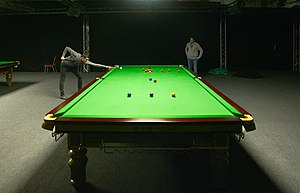
Pool balls can be used in billiards. These balls can be made from many materials but most often are made of phenolic. Phenolic is a mixture between formaldehyde, phenol. These two compounds have a reputation for being durable and resistant to scratching. This mixture is also highly resistant to heat. The resin will yellow and fade when exposed to sunlight.
The first pool ball was made from wood. These balls were tough, but they crack with age. In the 19th century, a chemist named Leo Baekeland invented a new plastic compound that was not flammable. This material was soon known as bakelite.
The process of creating pool balls was a costly one. The process of creating the balls was tedious. A person could cut a ball in half to get a better idea of what was inside. The balls were then molded under extreme pressure.

After the development of the first form of bakelite, other inventors began exploring chemical substances for making pool balls. These innovations were some of the most important in the history of synthetic plastics.
Although phenolic rubber is a good choice for pool ball balls, its cost is higher than its counterpart in polyester. The polyester alternative may be the best option for you if you don’t have the budget to spend on pool balls. The polyester alternative will not keep its color as long as phenolic.
Manufacturing a phenolic resin balls takes 23 days. Each step is checked carefully to ensure there are no impurities. Additionally, phenolic rubber balls can be stored at lower temperatures that polyester balls. They are therefore more durable and last longer.
Aramith is the largest manufacturer of phenolic pool balls. Their phenolic pool balls are extremely durable and retain their shine up to 40 year. They are also more affordable than polyester balls. The Aramith Premier is a high-quality resin technology set that will appeal to those who are looking to upgrade to higher-quality balls.

Another pool ball manufacturer is Iszy, which uses a combination of both phenolic and polyester resin. Although these types of pool balls are cheaper than phenolic balls, they don't maintain their shine for as long. Polyester balls are also more prone to fading and burn spots on the table. They are still an excellent option for beginners.
Predator Arcos is another manufacturer that uses a proprietary chemical to make phenolic resin balls. These balls can also be through-hardened which makes them more dense. You can opt for the Iszy marble swirl set, if you're looking to save money.
Many companies have attempted to duplicate the ivory billiard ball experience. However, ivory material is no long available. Modern pool balls are made with a mix of formaldehyde phenolic resin. Today, approximately 85% are phenolic.